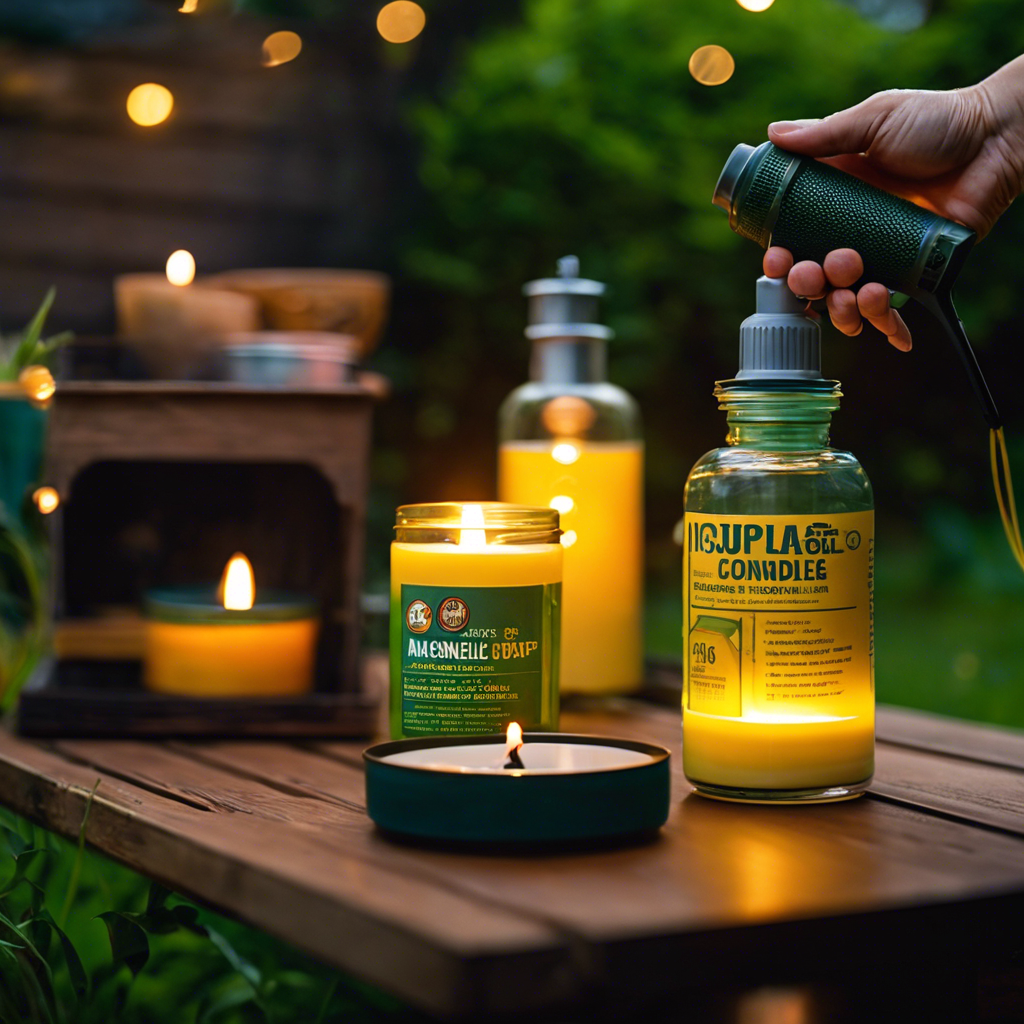In the domain of mosquito control, you must grasp the factors attracting these insects to humans for effective protection. Factors like carbon dioxide, lactic acid, and body temperature lure mosquitoes to you. Men emit more attractant compounds, making them prone to bites. DEET and picaridin are potent repellents offering lasting protection. DEET for long-lasting shield, picaridin for several hours of defense. Bats don’t notably decrease mosquito populations in yards. Educating yourself on these nuances is key to safeguarding against mosquito bites. This knowledge sets the foundation for robust mosquito control measures.
Key Takeaways
- Mosquitoes are attracted to carbon dioxide, not blood sweetness.
- Bats provide limited control over mosquito populations in yards.
- Certain plants may not effectively repel mosquitoes as believed.
- Dispelling myths aids in implementing more effective mosquito control strategies.
- Public education is vital for eradicating mosquito breeding sites and implementing control measures.
Mosquito Attraction Factors
Discussing mosquito attraction factors requires understanding the various biological and environmental elements that influence mosquito behavior towards humans. Mosquitoes are naturally drawn to carbon dioxide, lactic acid, and elevated temperatures emitted by humans, making them prime targets for mosquito bites.
Surprisingly, certain individuals produce unique compounds in their bodies that enhance mosquito attraction, making them more susceptible to bites. Factors such as sweating, metabolic rates, and even clothing color play a role in determining a person’s attractiveness to mosquitoes.
While humans are often plagued by mosquitoes, other creatures like bats actively prey on these insects, helping to control mosquito populations naturally. Additionally, utilizing citronella candles can aid in reducing mosquito bites by masking human odors that typically attract mosquitoes.
Gender Differences in Mosquito Behavior
Gender disparities in mosquito behavior manifest in the varying levels of attractiveness individuals exhibit towards these insects due to biological and environmental factors. When it comes to mosquito attraction, there are intriguing gender differences that influence how these pesky insects interact with humans:
- Men emit more cues: Men tend to emit more compounds that attract mosquitoes, making them more prone to mosquito bites compared to women.
- Pregnant women’s higher metabolic rate: Pregnant women have a higher metabolic rate, which increases their attractiveness to mosquitoes.
- Estrogen levels impact attractiveness: Women’s estrogen levels can play a role in how attractive they are to mosquitoes.
In addition to gender differences, body size plays a significant role in mosquito attraction. Larger individuals may be more susceptible to mosquito bites due to factors such as increased body heat and carbon dioxide emissions. Understanding these nuances can help individuals take proactive measures to protect themselves from mosquito bites.
Common Repellent Options
When considering protection against mosquito bites, it is essential to explore the various common repellent options available. Here are some key repellents that can help shield you from these pesky insects:
| Repellent Type | Effectiveness Against Mosquitoes |
|---|---|
| DEET | Considered the gold standard, provides long-lasting protection. |
| Lemon eucalyptus oil | Offers approximately 4 hours of effective mosquito protection. |
| Picaridin-based repellents | Highly effective alternative to DEET for repelling mosquitoes. |
| Permethrin-treated clothing | Effective protection when worn, especially on outdoor excursions. |
| Insect Shield clothing | Provides durable and long-lasting mosquito protection outdoors. |
DEET is known for its efficacy and longevity, making it a top choice for many. Lemon eucalyptus oil, although offering shorter protection, is a natural alternative with proven effectiveness. Picaridin-based repellents are gaining popularity as a strong DEET substitute. Additionally, clothing treated with permethrin and specially designed Insect Shield clothing offer practical options for extended outdoor activities. Choose the repellent that suits your needs to stay protected against mosquito bites.
Effective Prevention Strategies
To effectively prevent mosquito bites, using repellents containing DEET and picaridin is recommended.
Wearing permethrin-treated clothing can provide lasting protection against these insects.
Avoiding outdoor activities during peak mosquito activity times will greatly reduce the risk of bites.
Key Prevention Tips
For effective prevention against mosquito bites, it’s recommended to use mosquito repellents containing DEET or picaridin. Here are some key prevention tips to help you stay protected:
- Apply Repellent: Use mosquito repellents with DEET or picaridin before heading outdoors.
- Wear Protective Clothing: Opt for light-colored, long-sleeved clothing and garments treated with permethrin.
- Eliminate Standing Water: Remove any sources of standing water around your home to reduce mosquito breeding sites.
Common Misconceptions
Misconceptions surrounding effective mosquito prevention strategies often hinder the implementation of scientifically proven control measures.
While bug zappers may seem effective, they only kill a mere 6.4% of mosquitoes and can harm beneficial insect populations.
Bats, known for consuming insects, actually only feed on a small percentage of mosquitoes, and fostering bat habitats may bring about unintended consequences.
Citrosa plants, often believed to repel mosquitoes due to citronella oil, have limited scientific backing regarding their efficacy.
Public education is essential in eradicating mosquito breeding sites and identifying areas needing targeted control.
Surveillance is key for understanding mosquito distribution, species composition, and disease transmission risks, enabling more effective control strategies.
Myths About Mosquitoes
Many commonly held beliefs about mosquitoes aren’t supported by scientific evidence. Here are three myths about mosquitoes that are important to dispel:
- Mosquitoes Prefer Sweet Blood: Contrary to popular belief, mosquitoes don’t primarily prefer ‘sweet blood’ as a feeding source. Female mosquitoes are attracted to the carbon dioxide exhaled by mammals, which helps them locate hosts for a blood meal.
- Bats Reduce Mosquito Populations: While bats are known for eating insects, they don’t greatly reduce mosquito populations in yards as commonly believed. Mosquitoes make up only a small portion of a bat’s diet.
- Certain Plants Repel Mosquitoes: Growing specific plants in the garden is often thought to effectively repel mosquitoes. However, scientific evidence doesn’t strongly support this claim. While some plants may have insect-repelling properties, their effectiveness in deterring mosquitoes may be limited.
Understanding these myths can help in implementing more effective mosquito control strategies.
Role of Carbon Dioxide and Lactic Acid
Contrary to popular belief, mosquitoes are primarily attracted to the carbon dioxide exhaled by humans and lactic acid produced by muscles, serving as key cues for locating hosts. Understanding the importance of carbon dioxide and lactic acid in mosquito behavior is essential for effective mosquito control strategies. When you respire, you release carbon dioxide, making you a target for mosquitoes. Similarly, engaging in physical activities that produce lactic acid can also draw these pests towards you.
To emphasize the role of carbon dioxide and lactic acid, consider the following table:
| Key Points | Description | Significance |
|---|---|---|
| Carbon Dioxide | Exhaled by humans during respiration. | Primary attractant for mosquitoes. |
| Lactic Acid | Produced by muscles during exercise. | Attracts mosquitoes to individuals. |
| Mosquito Control | Understanding these cues aids in implementing effective strategies for mosquito control. | Helps in reducing mosquito populations and bites. |
Reliable Sources for Mosquito Information
When seeking accurate and up-to-date information on mosquitoes and effective control measures, turning to reputable sources such as the CDC website is recommended. Reliable sources for mosquito information play an essential role in helping individuals make informed decisions regarding mosquito control. Consider the following:
- CDC Website: The Centers for Disease Control and Prevention (CDC) website offers extensive resources on mosquito-borne diseases, prevention strategies, and the latest updates in mosquito control research.
- University Research Studies: Universities conduct thorough studies on mosquito behavior, habitats, and control methods. These studies provide valuable insights into effective mosquito control measures.
- Healthcare Professionals: Consulting with healthcare professionals can offer personalized recommendations for mosquito protection based on individual health considerations and risk factors.
Efficacy of DEET and Picaridin
DEET and Picaridin are two widely recognized mosquito repellents known for their efficacy in preventing mosquito bites.
DEET, the gold standard repellent, offers long-lasting protection, while Picaridin provides several hours of defense against mosquitoes.
Understanding the effectiveness of both DEET and Picaridin is important in choosing the right repellent for reducing the risk of mosquito-borne diseases.
DEET Effectiveness Overview
Considered one of the most effective mosquito repellents available, DEET provides long-lasting protection against a wide range of mosquito species. When it comes to protecting yourself from mosquito bites and potential mosquito-borne diseases, DEET and Picaridin-based repellents are at the forefront of defense. Here’s why they’re highly recommended:
- DEET has been extensively tested and proven to be safe for use according to the product label instructions.
- Picaridin-based repellents offer a good alternative to DEET for individuals with sensitivity concerns.
- Health authorities endorse both DEET and picaridin for safeguarding against diseases like Zika, West Nile virus, and malaria.
Picaridin Pros and Cons
Picaridin, like DEET, presents distinct advantages and disadvantages in its efficacy against mosquitoes, forming a critical aspect of mosquito repellent options to take into account.
Picaridin is equally effective as DEET in repelling mosquitoes, ticks, and other biting insects, making it a reliable choice for mosquito protection.
One key advantage of Picaridin is its milder scent, which provides a more pleasant experience for users compared to DEET. Additionally, Picaridin is non-greasy, non-sticky, and less likely to damage clothing or gear, enhancing user comfort.
The CDC recommends Picaridin as a safe and effective alternative to DEET. It also offers long-lasting protection, typically lasting for 8-14 hours against mosquitoes, ensuring extended coverage for outdoor activities.
Comparing DEET Vs Picaridin
When evaluating the effectiveness of mosquito repellents containing DEET and Picaridin, it’s essential to examine their performance against a variety of mosquito species. Here are some key points to take into account:
- DEET is the gold standard mosquito repellent, providing long-lasting protection against various mosquito species.
- Picaridin-based repellents offer effective protection without the greasy feel of DEET.
- DEET provides longer-lasting protection compared to Picaridin, making it suitable for extended outdoor activities in mosquito-prone areas.
Both DEET and Picaridin are effective choices against mosquitoes, with the decision between them depending on personal preferences, outdoor exposure duration, and sensitivity to different active ingredients.
Practical Tips for Mosquito Control
To effectively manage mosquitoes, utilize mosquito repellents with at least 15% DEET for optimal protection. Environmental factors play a vital role in attracting mosquitoes. Factors such as climate, stagnant water, and shaded areas increase mosquito activity. Understanding and addressing these factors can greatly enhance mosquito control efforts. Nature Guard’s Mosquito Defense solutions offer efficient methods for managing mosquito populations in residential areas. These solutions target breeding sites and resting areas, reducing the overall mosquito population.
In addition to using repellents and environmental control, be mindful of your diet. Foods that increase lactic acid levels in the body can attract mosquitoes. Avoiding these foods can help decrease your attractiveness to these pests. Moreover, consider your attire. Dark clothing tends to attract mosquitoes, so choosing lighter-colored clothing can help minimize the chances of being bitten.
Frequently Asked Questions
What Do Mosquitoes Hate the Most?
Mosquitoes hate the scent of citronella, making it an effective natural repellent. Essential oils like lemon eucalyptus also deter mosquitoes. Citronella candles can offer protection. Opt for these to keep those pesky biters away.
What Is a Crazy Fact About Mosquitoes?
Mosquitoes have a crazy fact related to their behavior. Did you know that only female mosquitoes consume blood for egg development, and in the process, they can transmit diseases like malaria and Zika?
Does Eating Less Sugar Keep Mosquitoes Away?
Eating less sugar alone won’t keep mosquitoes away. They’re drawn to carbon dioxide, not just sweets. Consider using natural repellents, like DEET or picaridin, and controlling environmental factors instead. Your diet might not make a big difference.
What Are 3 Common Methods to Control Mosquitoes?
To control mosquitoes, you can use natural repellents, chemical sprays, and mosquito traps. These methods help repel and eliminate mosquitoes effectively. Natural repellents deter mosquitoes, chemical sprays kill them, and traps capture and reduce their populations.





